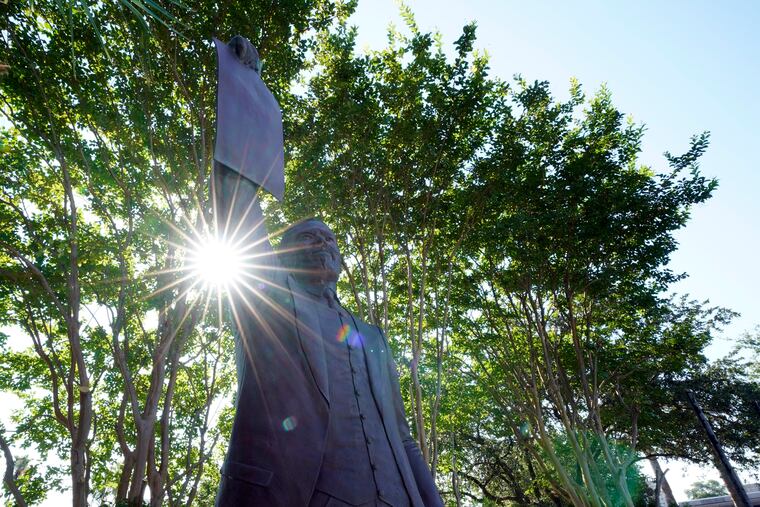On Juneteenth, a time to reflect on how America got equality so wrong | Editorial
Juneteenth demands we recognize our failure to deliver on the promise of equality for all.

It makes sense that the battles over statues — which are meant to commemorate both people and values — flared at the same time calls began rising for a new national holiday to celebrate Juneteenth.
The events marked by the holiday are bitter ... and bittersweet: June 19 commemorates the day when Texas slaves learned slavery had ended with the Emancipation Proclamation — which President Abraham Lincoln had signed two and a half years earlier.
The call for Juneteenth to be a national holiday is worth supporting. Not because it’s enough. Not because it changes history. But because like the statues we erect and the holidays we decree, it demands we collectively declare and recognize shared values. In the case of Juneteenth, it demands we recognize our failure to deliver on the promise of equality for all.
The statues that became flashpoints in the past month — of Frank Rizzo and Christopher Columbus here, and of Confederate leaders in the South — are monuments to brutality and inequality. That recognition is not new. In 2015, following the Charleston, S.C., church shooting, statues were removed, and two years later, white nationalists protested the removal of a Confederate statue in Charlottesville, Va.
We can only hope that this time — of galvanized outrage over the death of George Floyd, and the many people before him who died at the hands of police — will be different.
» READ MORE: What you need to know about Juneteenth and why we should all celebrate
It’s hard to be optimistic, though, in light of the fact that at least 775 Confederate statues and monuments remain standing in the South, according to the Washington Post — with some lawsuits standing in the way of attempts to remove them.
Until they are gone, this remains a nation divided, where some regions still honor a past based on dehumanizing and enslaving people, as well as a disregard for the harm it still inflicts on their descendants. The Civil War ended 155 years ago, but maybe it’s time to acknowledge that the war never actually stopped. That’s certainly true in the parts of the country where people continue to worship the heroes of the Confederacy. It’s also true for the black people in every state and city who continue to struggle economically, socially, and physically. Black Americans are still not free from violence, incarceration, economic and neighborhood disenfranchisement, and disproportionate vulnerability to illness, including the coronavirus.
The holiday honoring Martin Luther King Jr. took decades to establish, and another decade to transform into a day of service.
A national Juneteenth holiday should also be more than a day off. It should be marked by the systematic removal of the hundreds of Confederate statues that still stand. But more than that, Juneteenth should be a day that both celebrates freedom and recognizes the discomfort that a country founded on democratic principles allowed its people to deny the damage of slavery and inequity for so long. Juneteenth comes two weeks before America celebrates the independence of this country, with a document that promised equality but failed to deliver it. We should spend the two weeks between Juneteenth and July 4th reflecting on how and why that happened, and how we can begin to undo that damage.